SIBUR has been cooperating with colleges and universities for decades, with a strong focus on school-to-workplace links going back to Soviet times. For instance, Voronezhsintezkauchuk, our oldest facility, has long-standing historical ties with the Voronezh State University of Engineering Technologies, its key source of local talent. Such examples are numerous, as we seek to keep close contact with students from a range of dedicated universities and colleges.
We offer bespoke partnership education programmes carefully tailored to our business needs and market challenges. Naturally, new generations of graduates have their own requirements and vision of education and successful career.
At SIBUR, we pay a lot of attention to early identification and quality training of talent. To this effect, we run some 150 traditional career guidance events annually to raise awareness of our business and available jobs. Over half of students attend those on a regular basis. On top of that, we arrange for targeted training of future employees.
We start nurturing talent from school level, communicating our professional requirements and engaging our managers to provide special training, lectures and workshops. Universities contribute to the process by sharing information and experience with schools to improve training of prospective students for national higher education entrance exams.
In 2017, we launched SIBUR’s Classes in Tobolsk offering students a new curriculum and training in basic professional and corporate competencies during their last two years at school.
Voronezh hosts a chemistry contest for school students supported by SIBUR. Photo: vk.com/siburvn.
Mediator for universities
We choose partners for our education programmes based on our goals and objectives. The more graduates we need from a specific university, the closer is our cooperation. At anchor universities, we run both targeted training programmes and employer branding initiatives, which include organising SIBUR's areas, career days, site visits, and networking with our professionals.
Some universities are better suited for training in competencies required for specific local projects. Overall, we are working with some 40 universities, with 10 of them growing talent for our prospective facilities. Today's higher education needs more alignment with the industry, which virtually makes us a mediator that helps major universities implement ministerial initiatives by tailoring their curriculum to the local labour demand.
Universities located in our regions of operation provide modular and dual education, with the curriculum adjusted to maximise the number of apprenticeship and tutoring hours. In case the university is a long distance away from the investment project site or facility that urgently needs staff, we employ a modular or online system enabling universities from different regions to exchange study modules combined with mandatory apprenticeship at SIBUR’s sites.
Science camps for school students in Tobolsk. Photo: vk.com/tob_prom.
First and foremost, we expect our partner universities to have high-quality facilities, resources and methodology in place to educate students in the relevant area. The university that does not specialise in chemistry is unlikely to provide dedicated training of good quality even if it is located close to our plant.
A dual education system combines apprenticeship in a company and college training in one course.
Another prerequisite is brand loyalty and the willingness of academic staff and managers to tailor training programmes to business needs and use new methods to maximise learning outcomes. We place a great emphasis on creating the right vision of our business, production processes, market challenges and SIBUR's corporate culture and values among students.
Large-scale recruitment
For three years running, we have been massively recruiting for ZapSibNeftekhim, our major project. Facilities of this scale need to be staffed a year before their launch. To do this, we selected regions to provide and train young talent, with Tyumen at the centre stage of the campaign. It was the most successful region in implementing the school-to-workplace training model, which secured a continuous supply of qualified graduates to our facilities.
In 2017, SIBUR ranked as the best employer, according to FutureToday’s national survey of universities.
Tobolsk is the home to two SIBUR’s plants, with the third one under construction. This makes it a major point of talent acquisition by SIBUR, so the launch of a local long-term training programme was an absolutely logical step. We would like students from different parts of Russia to get to know and fall in love with Tobolsk so that they would choose it as a place of permanent residence and employment once their training is completed.
Last year, ZapSibNeftekhim hired 73 students from among the first ones that completed targeted training programmes across our regions of operation, with some 120 more to be employed in the near term, including graduates from the Far East of Russia. These are the students that took apprenticeship at our production sites over the course of their training and received positive feedback from their mentors, which makes them fully prepared for the job.
Welcome to SIBUR: school students visit the Voronezh site. Photo: vk.com/siburvn.
Digitisation
Universities that keep abreast of market needs are offering their students advanced integrated training programmes, for example in chemical cybernetics.
Today, one of the key challenges faced by the education system is the gap between theoretical training, which may be of good quality, and the practical job requirements. Together with relevant universities, we are working to close this gap. The Fourth Industrial Revolution has drastically changed the required employee profile, with employers seeking graduates with a much broader set of skills and competencies in a range of related occupations.
For example, a chemist should have some expertise in IT and modelling. Universities that keep abreast of market needs are offering their students advanced integrated training programmes, for example in chemical cybernetics, that combine math, physics and IT. Yet these examples are still few, with students lacking IT competencies more than any other. Last year, SIBUR focused on strengthening cooperation with universities and colleges that provide education in software engineering, digital technologies, data analysis and processing.
The company also started working on digital transformation of production processes. The labour market is facing a colossal competition for relevant experts who are extremely hard to find. To train our own talent for data scientist, developer, scrum-master and the like roles, we started offering internships to those who study programming, mathematics and analytics. The trainees with no experience in petrochemical production will be able to obtain the required competencies along the way.
A modular education system is a set or sequence of individual study modules. Their scope and duration may vary depending on the objective, subject, level, individual needs, and the learning curve of each student. Modules may be mandatory and elective (optional).
Best employer for target universities
For several years, we have been focused on strengthening our employer brand by collecting and analysing feedback from students of target universities.
In 2017, SIBUR ranked as the best employer, according to FutureToday’s national survey of universities. The survey covered some 20,000 students from target departments at 38 universities located in 16 Russian regions. Over one third of the polled named SIBUR as the best employer and praised its exceptionally strong support for the students.
The key criteria for selecting the best employer include career and salary growth opportunities, stability and social security. This year, we will be further developing our employer brand with a focus on IT graduates. To this effect, we are going to use new formats, such as hackathons inviting students to find solutions to real digitisation challenges under the supervision of SIBUR’s experts.
We aim to give them a practical insight into how our business operates, which they cannot obtain from the media or our website only.
Meeting with SIBUR’s managers and visiting our sites is the best way for them to learn about our production processes, and for us it is a good opportunity to improve the perception of our brand.
SIBUR partners with the Voronezh State University of Engineering Technologies. Photo: m-group.vsuet.ru.
Mobile staff
Relocating for a job is unpopular in Russia. Russians rarely opt to move to get a new employment, while in the US this would be a normal practice. While recruiting for ZapSibNeftekhim, we realised that each candidate had their own prejudices, doubts and difficulties associated with relocation. All these can be resolved if one is truly determined, with SIBUR ready to help employees start a new life. At meetings with students, we provided a detailed view of our production processes, new facilities and opportunities that may be unlocked by starting a career at ZapSibNeftekhim. Also, we showed videos about Tobolsk and presented a dedicated guide for new residents.
If you have any questions on SIBUR’s education programmes, do not hesitate to email them to dearcustomer@sibur.ru.
Download PDF

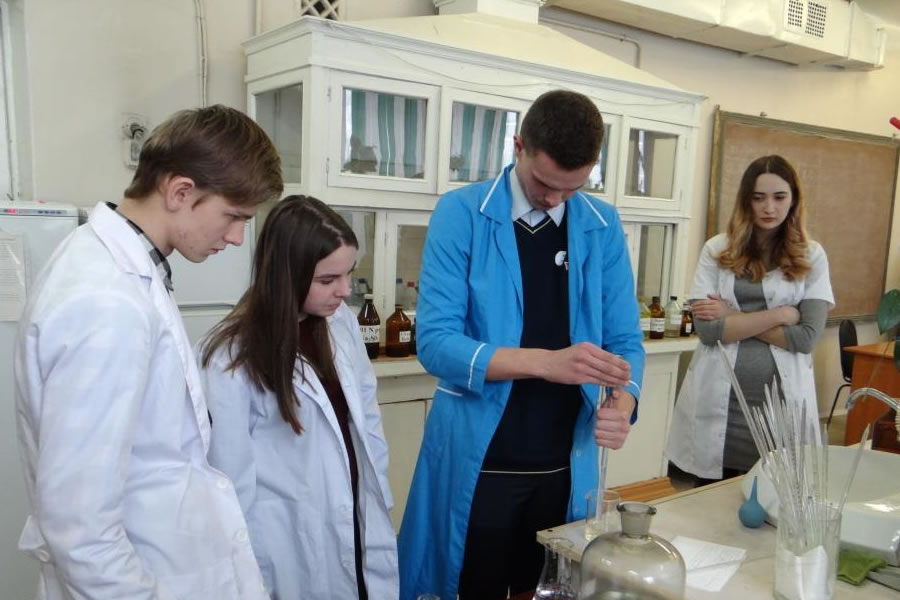

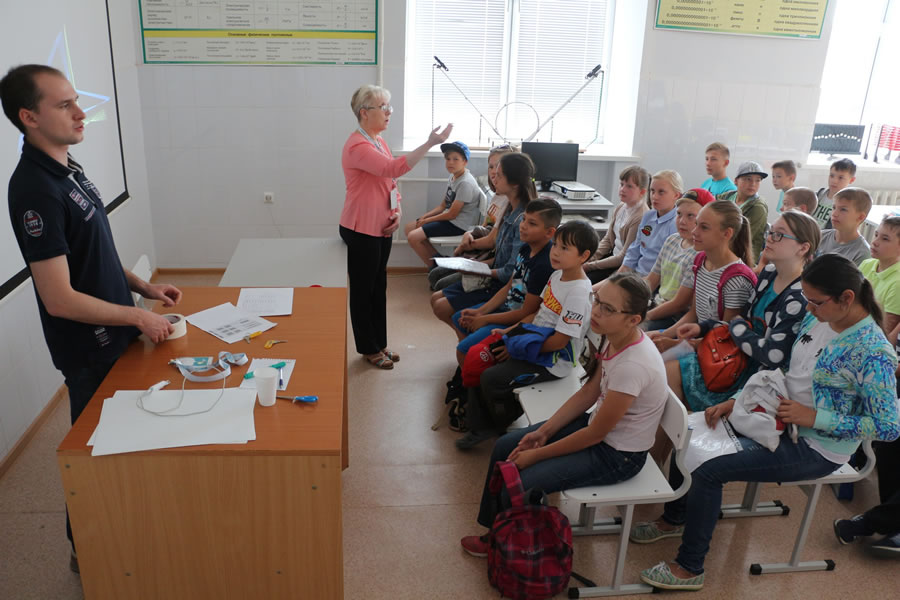
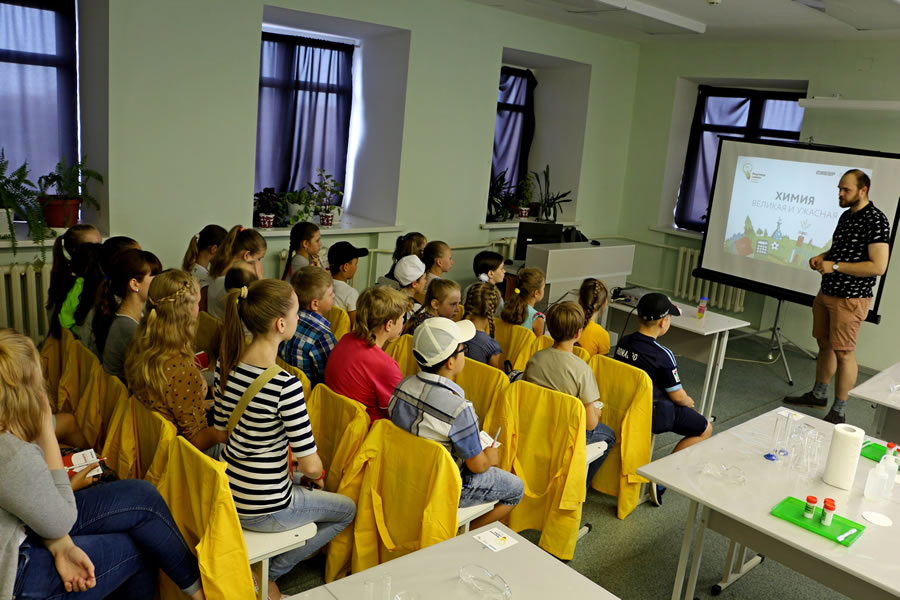
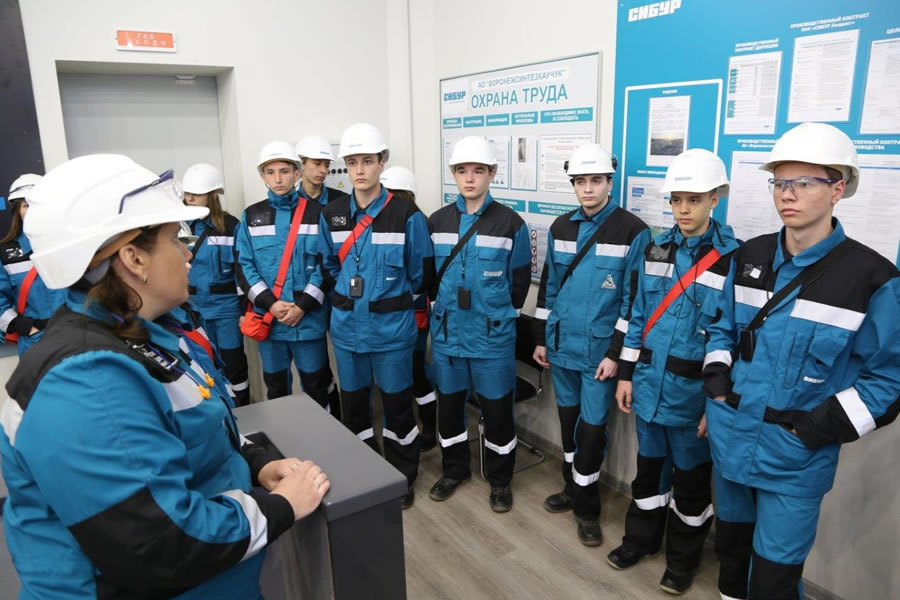
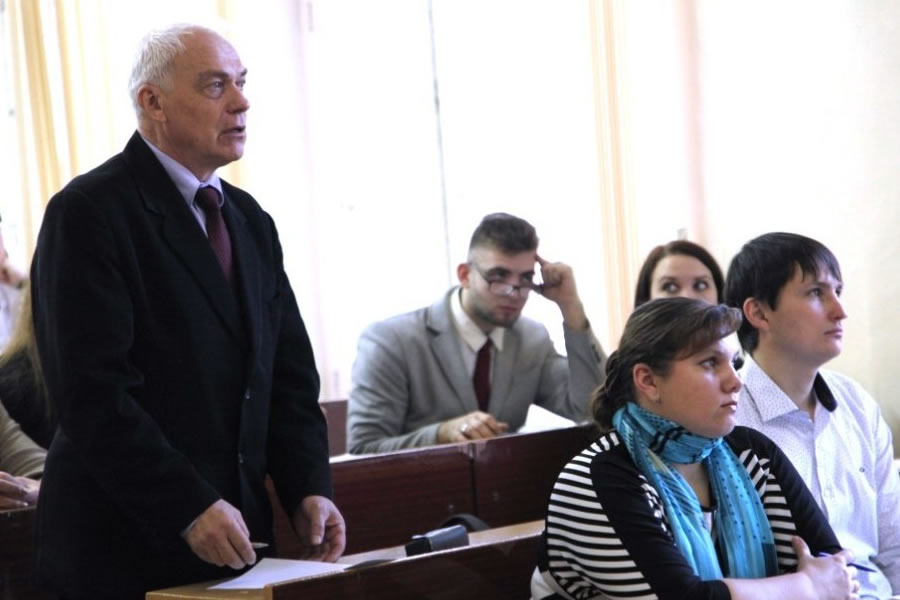
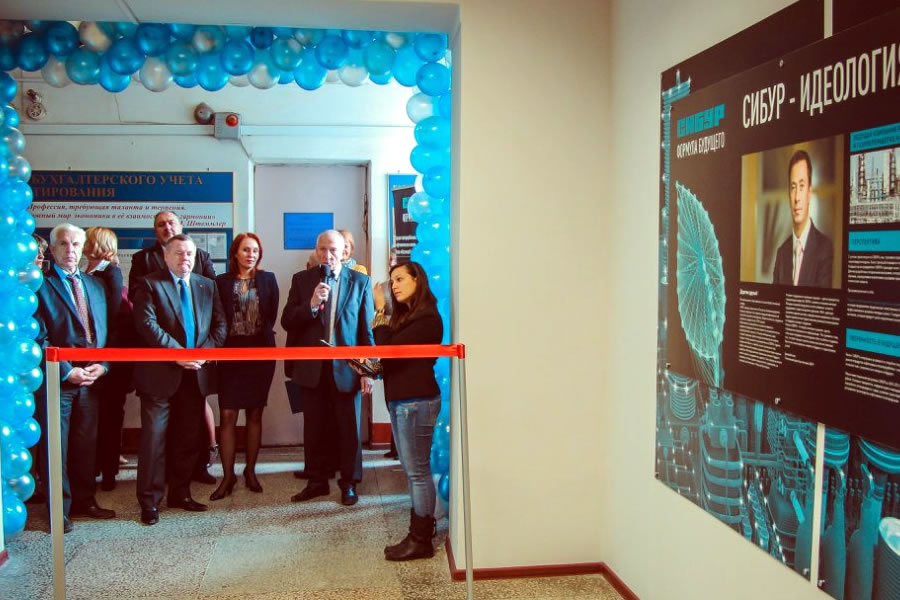





Valentina Chernykh
senior employer brand and graduate recruitment expert